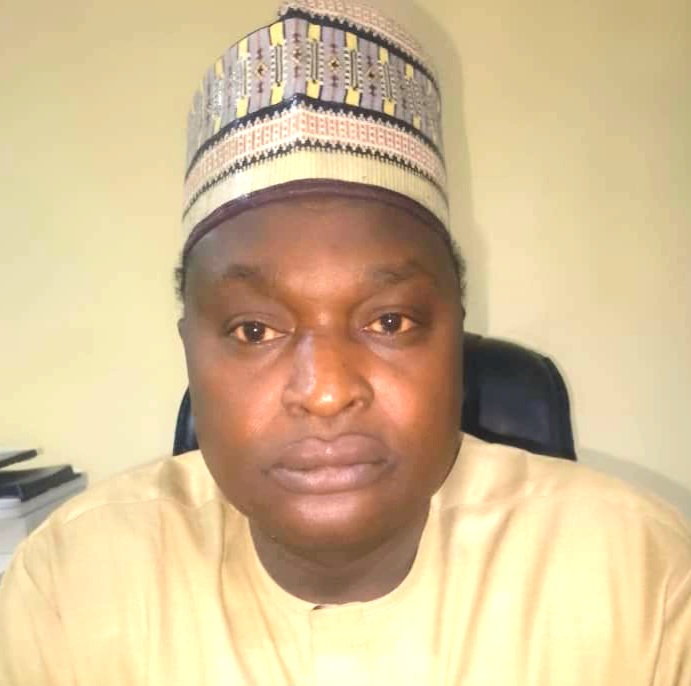Yobe state located in Nigeria’s North-East region neighboring Jigawa, Borno and Bauchi states, has long been at the forefront of the country’s battle against insecurity.
Over the years, the state has witnessed a series of insurgencies, particularly from Boko Haram, which resulted in the loss of lives, destroyed infrastructure, halted education system, agricultural productions and hampered overall development in the state.
However, recent strides by the government, security agencies, and community leaders are shaping a promising future for the state.
A Collaborative Approach to Security
Governor Mai Mala Buni’s administration has prioritized a collaborative approach to security, recognizing the importance of partnerships among the military, police, and local vigilante groups.
The establishment of the Yobe State Security Task Force, led by Senior Special Adviser (SSA) on Security to the Governor, Brigadier General Dahiru Abdulsalam (Rtd.), combines the efforts of these groups, has significantly improved coordination in combating insurgents and other criminal elements.
Furthermore, the government has been proactive in fostering community participation in security matters. Town hall meetings across local government areas allow citizens to voice concerns and offer solutions tailored to their unique challenges.
This grassroots involvement ensures that security strategies are inclusive and effective resulting to enhance surveillance and prompt responses to eventualities across the state.
Investments in Technology and Infrastructure
One of the key pillars of Yobe’s security future lies in technological advancements. The government recently announced plans to deploy drones and surveillance equipment to monitor hard-to-reach areas, particularly along the borders shared with Borno and Niger Republic.
These innovations will enhance real-time intelligence gathering and rapid response to threats.
Additionally, the state is investing heavily in rebuilding infrastructure destroyed by insurgents. Schools, hospitals, and roads are being reconstructed, with a focus on ensuring they are resilient to future attacks.
This not only restores normalcy but also boosts public morale and confidence in the government’s commitment to security.
Empowering Youth to Curb Insecurity
Recognizing the role of unemployment in fueling insecurity, the Buni administration has rolled out several youth empowerment initiatives.
The newly launched Yobe Skills Acquisition Programme trains young people in various trades, providing them with tools and resources to start businesses. These initiatives reduces the pool of vulnerable individuals who might otherwise be lured into criminal activities.
The government is also partnering with organizations to provide psychosocial support and rehabilitation programmes for youths affected by insurgency. These programs aimed at reintegrating former insurgents and victims back into society, promoting peace and reconciliation.
Strengthening Regional Collaboration
Yobe’s strategic location as a gateway to the Lake Chad region underscores the importance of regional collaboration. The state is actively involved in the Multinational Joint Task Force (MNJTF), which includes neighboring countries like Chad, Niger, and Cameroon. This coalition enhances cross-border security operations, ensuring insurgents have no safe havens.
The Road Ahead
Despite these efforts, challenges remain. Occasional attacks and the slow pace of reintegration for displaced persons highlight the need for sustained action. However, Yobe’s leadership and its people remain resolute in their commitment to a secure and prosperous future.
With continued investment in technology, youth empowerment, and regional partnerships, Yobe state is on track to become a model of resilience and innovation in tackling insecurity. The foundation being laid offers hope not only for the state but for the entire region as it seeks lasting peace.
More importantly, Yobe state was set to host the fifth session of the Lake Chad Basin Governors’ Forum, a critical meeting aimed at addressing the lingering security and socio-economic challenges in the region.
The forum billed to hold from Jan. 29 to Jan. 31, in Maiduguri, has as its theme: “Rebuilding the Lake Chad Basin: Consolidating Gains, Commitment to Peace, Cross-Border Cooperation, Security, and Sustainable Development for a Resilient Community,”
It was envisaged that the forum will continue to serve as a platform for not only political dialogue but also for sharing best practices and research driven solutions to address multifaceted challenges bedevilling the region.
It would bring together leaders from Nigeria, Niger, Chad and Cameroon, to discuss strategies for promoting peace and development in the Lake Chad basin.
This came at a time when the region was grappling with the long term effects of the Boko Haram insurgency, poverty, climate change and widespread displacement of over six million people in the last 15 years. with Nigeria hosting 74 per cent of the affected population.
According to the government statement, the forum will focus on fostering dialogue, coordination and cooperation among stakeholders, adding that the forum underscored the Yobe government commitment to fostering regional stability and collaboration.
The event will provide a crucial platform for discussions aimed at restoring peace and rebuilding communities in the Lake Chad basin.
Forum outcome is anticipated to lay the groundwork for a more hopeful and resilient future for all affected communities in the region.
Focus discussions would be addressing pressing issues such as security and humanitarian trends, cross-border trade a d food insecurity, as well as the impact of illicit drug trafficking on violence.
The sessions will also explore the empowerment of youth and women-led civil society organisations, and strategies for accelerating the implementation of Territorial Action Plans (TAPs).
A follow up phase will ensure that recommendations from the forum are implemented, with responsibilities assigned to stakeholders and clear deadlines set to ensure accountability.
As Governor Buni aptly stated during a recent security summit, “The future of Yobe is bright because we are building it together.”




